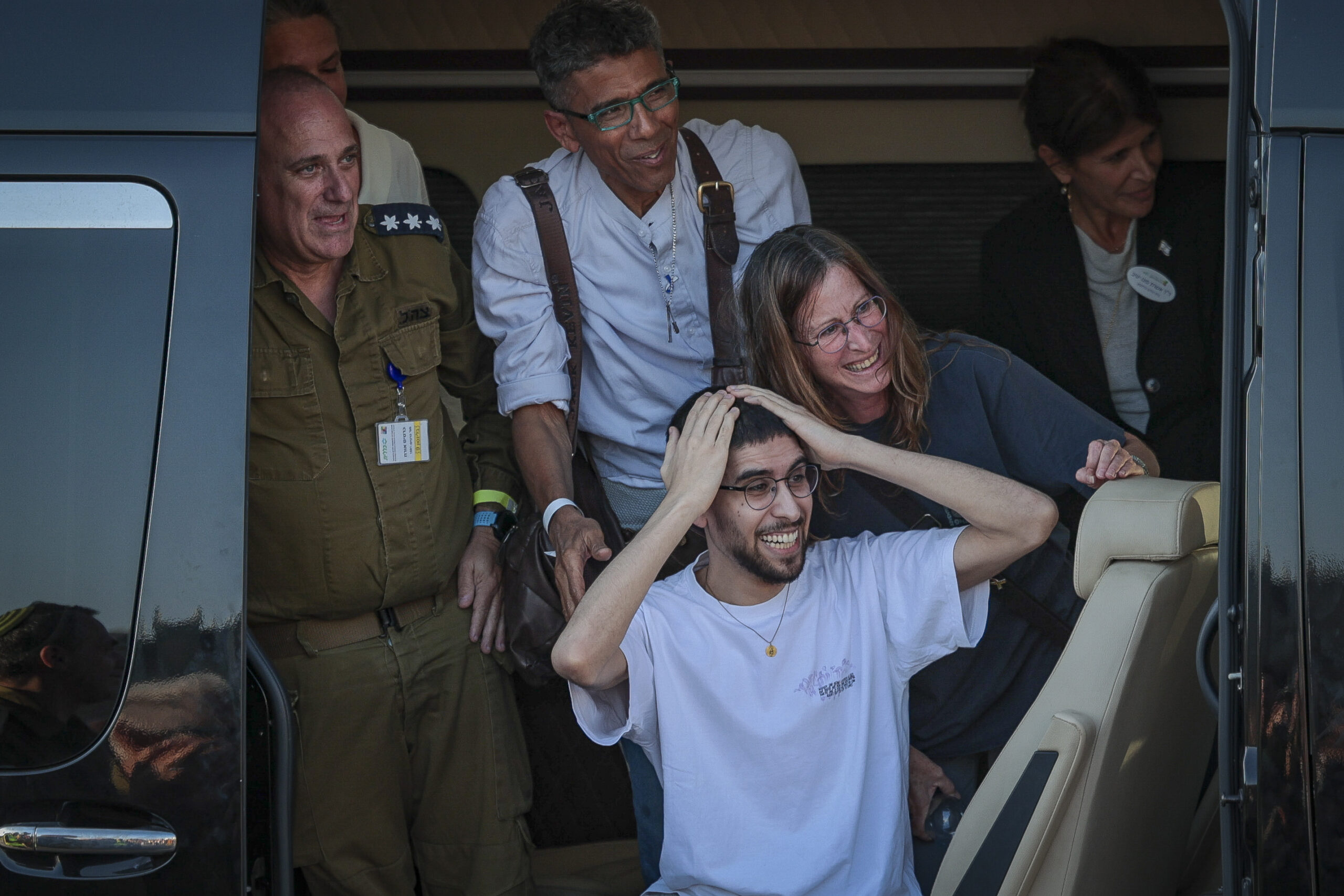For the hostages who endured years of captivity in Gaza, their ordeal became an unexpected spiritual journey—one that transformed their relationship with God and deepened their connection to their Jewish heritage.
Rom Braslavsky, speaking from his hospital bed after two years in captivity, described how his faith became his lifeline. When Hamas captors attempted to coerce him into converting to Islam, promising food in exchange, Braslavsky refused. Starving and weak, he told himself: “I’m a Jew. I’m strong. I won’t break.”
His captors offered incentives—reading the Quran or fasting during Ramadan would earn him small gifts and extra rations. But Braslavsky remained resolute. According to his mother Tami, her son repeatedly affirmed his identity throughout his imprisonment: “I am Jewish, I am strong, I will not break.” Upon his release, his first act was to put on tefillin.
The most harrowing moment came when an angry mob gathered, threatening to lynch him. In that desperate moment, Braslavsky recited the Shema Yisrael prayer. “I told God, ‘I can’t end like this. You didn’t take me out of there to end in a lynching. I’m not going like this,'” he recalled. Moments later, he heard keys at the door—his abductor had returned, dispersed the crowd, and moved him to safer quarters.
“The strength in the place I was in—the knowledge that everyone around me was not Jewish, and the fact that I was sitting there, the reason was because I am Jewish,” Braslavsky reflected in conversation with Shai Graucher. “Everything I went through, the reason is because I am Jewish.”
For fellow captive Or Levy, the path to faith was more gradual. In the isolation of captivity, he first spoke to a small crack in the wall, then to a dim LED light—and eventually to God himself. According to Levy, his prayers were answered when he was ultimately saved from his suffering.
“I used to talk to a crack in the ceiling. And then we got into the tunnel and I switched to a small LED light. And then we got to a different tunnel, and then there was only darkness. And this is when I first said the word God. And from that point on, I spoke to God.”
— Open Source Intel (@Osint613) October 15, 2025
—Or Levy pic.twitter.com/h1ePyxG5R0
Segev Kalfon’s spiritual moment came while still in captivity. After repeatedly asking his captors, they finally allowed him to watch footage of hostage Ohad Ben Ami being released. “I was happy that he was released, and I imagined how it would happen for me as well,” Kalfon told Graucher. “I had a dream of going up on that stage, with all of Hamas surrounding me, and shouting ‘Shema Yisrael, Hashem Elokeinu, Hashem Echad.'”
When Segev’s father Kobi spoke from Tel HaShomer Hospital after his son’s return, he began with the Shehechiyanu blessing—a prayer of gratitude for reaching special moments. “Segev is once again in my hands, embraced by our family,” he said. “I have full faith in God’s strength, who held us through these difficult months and brought us to this emotional moment.”
For Braslavsky, the experience crystallized what he sees as an essential truth: “A person who is Jewish needs to know that they are in a great place, that they are different from someone who is not Jewish. We need to strengthen the Judaism within us.”
His message to the people of Israel is one of unity and renewal: “We need to return to being a united people, and people need to start keeping the commandments. People need to understand and know that we are Jews.”
Hostage survivor Eitan Horn met with social activist Shai Graucher and tearfully told him how he decided this year, for the first time in his life, to fast on Yom Kippur [Jewish day of atonement], believing that this would lead to his speedy release from captivity.
“On the eve of last Rosh Hashanah, I said “this time I will fast properly on Yom Kippur and it will come. This is the first time in my life that I have fasted properly,” Horn recalled.
He added, “Not much time has passed and here I am. I did not think of fasting on the first Yom Kippur in captivity, but I decided to take responsibility for myself.”




